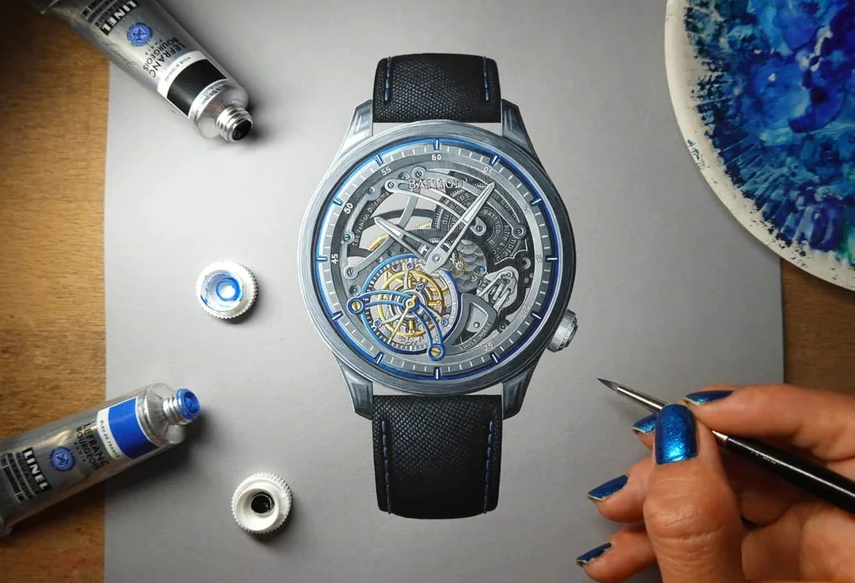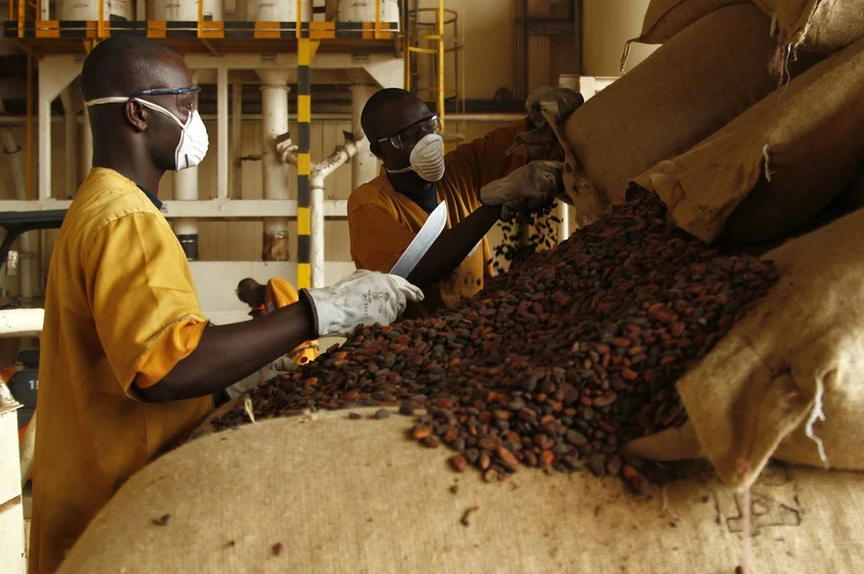Game changer? Baillod’s tourbillon watch has already made waves in the watch community Baillod Entrepreneur Thomas Baillod has just launched a “Swiss Made” tourbillon watch for under CHF5,000 (,450), a marketing coup which shows that mid-range watches still have a place in a watch industry increasingly focused on ultra-luxury. Patented in 1801 by Abraham-Louis Breguet, the tourbillon still fascinates lovers of fine mechanical watchmaking. The mechanism, a small rotating cage carrying the watch’s regulating “organs”, was designed to correct minor disturbances caused by gravity. In the 19th century very few watchmakers succeeded in imitating the technical skills of the Neuchâtel-born physicist and watchmaker. Until the early 1990s, fewer than 1,000 watches with a
Topics:
Swissinfo considers the following as important: 3.) Swissinfo Business and Economy, 3) Swiss Markets and News, Business, Featured, newsletter
This could be interesting, too:
Nachrichten Ticker - www.finanzen.ch writes Die Performance der Kryptowährungen in KW 9: Das hat sich bei Bitcoin, Ether & Co. getan
Nachrichten Ticker - www.finanzen.ch writes Wer verbirgt sich hinter der Ethereum-Technologie?
Martin Hartmann writes Eine Analyse nach den Lehren von Milton Friedman
Marc Chandler writes March 2025 Monthly
Entrepreneur Thomas Baillod has just launched a “Swiss Made” tourbillon watch for under CHF5,000 ($5,450), a marketing coup which shows that mid-range watches still have a place in a watch industry increasingly focused on ultra-luxury.
Patented in 1801 by Abraham-Louis Breguet, the tourbillon still fascinates lovers of fine mechanical watchmaking. The mechanism, a small rotating cage carrying the watch’s regulating “organs”, was designed to correct minor disturbances caused by gravity.
In the 19th century very few watchmakers succeeded in imitating the technical skills of the Neuchâtel-born physicist and watchmaker. Until the early 1990s, fewer than 1,000 watches with a tourbillon had been made by Swiss watchmakers.
How a tourbillon works:
In the past 20 years, however, with the return to favour of mechanical watchmaking and the boom in demand in Asia for luxury watches, tens of thousands of tourbillon wristwatches from Swiss brands have been sold around the world. Carefully created and enhanced by the world’s best designers, watches with this complication (as mechanical watch features are known) usually cost more than CHF100,000 and are obviously aimed at a wealthy clientele.
Spectacular watches
But these are now selling for as little as CHF4,700, including taxes. That is what Baillod, founder of the watchmaking start-up BA111ODExternal link in Neuchâtel, western Switzerland, is charging for his watch, developed by the independent watchmaker Olivier Mory. The first 220 models in the series are on sale online for delivery in April – 130 have already been sold.
“My aim is to launch spectacular watches at accessible prices. I want to prove that it’s possible to democratise fine watchmaking while making no concessions on quality,” Baillod explains in his offices at the foot of Neuchâtel Castle.
The launch at the end of 2021 of the fourth model of the young BA111OD brand has not gone unnoticed in the microcosm of Swiss watchmaking.
“Even if the tourbillon has become more common than a few years ago, it remains the Holy Grail of watch complications. And one of the most expensive. Six years ago the launch by TAG Heuer of a Swiss-made tourbillon model costing less than CHF15,000 already provoked intense debate in the watchmaking community,” says Serge Maillard, a journalist and co-director of the specialist Europa Star HBM publications.
Limiting distribution costs
Baillod has managed to cut that price by two-thirds.
“Production costs represent only a small fraction of the price of the watch. The potential savings lie in distribution,” he says.
There is no question of going to Asia for supplies or putting pressure on his suppliers to save a few francs. The various components of the BA111OD tourbillon are made entirely by Swiss subcontractors, which enables the brand to claim the “Swiss Made” label.
But it’s on the sales side that Baillod has developed an innovative concept that lets him drastically reduce costs. Anyone who buys a BA1110D watch automatically has the right to earn tokens – which can be exchanged for products and experiences – by selling another BA1110D watch to someone else. An app tracks all of these transactions and encourages customers to keep promoting and selling BA1110D timepieces.
What’s more, the only way to buy a BA1110D watch is directly from its website or through its community appExternal link, which strips out the cost of distributors or agents and keeps marketing costs at a minimum. The start-up thus recovers the margins usually given to intermediaries, which represent nearly 65% of the sale price of the watch.
The advertising budget is also “insignificant”: unlike many community watch brands that have emerged in recent years, BA111OD doesn’t flood social media with advertising but relies on its community of “afluendors” – a term coined by Baillod for “ambassadors”, “influencers” and “vendors” – to promote its products.
By launching a highly complicated watch for less than CHF5,000, Baillod is also indirectly pointing the finger at brands that have gorged themselves on easy profits in recent years. “Some watchmaking houses don’t hesitate to charge their customers up to 12 times the cost price of a tourbillon movement. With us, margins are in the range of 45% to 50%,” he says.
‘Affordable gateway’
Hugues Jeannerat, professor of innovation and economic geography at the University of Neuchâtel, welcomes Baillod’s concept.
“This tourbillon watch is aimed at people who are passionate about watchmaking and who can’t afford to buy timepieces costing tens of thousands of francs but who gain access to a certain exclusivity,” he says.
“It is precisely this segment [of the market] that the watchmaking industry must win back. If they don’t, they risk becoming totally disembodied in the eyes of the general public.”
Serge Maillard agrees. “The watch industry will be healthy as long as new entrepreneurs take an interest in it. This type of project makes it possible to test the potential of a new clientele by offering an affordable gateway to quality watchmaking products.”
After being turned down by many established brands, Baillod said his main ambition was to demonstrate the viability of his concept by launching his own range of mechanical watches. The fact remains that his brand is in the process of establishing itself among the landscape of fashionable new watchmaking companies. It is already present in around 50 countries via its community of ambassadors.
“At the moment my concern is more to curb an uncontrolled explosion in demand. Imagine if the fuse lit in the United States: we would quickly be faced with delivery difficulties,” he says.
Exponential growth
Founded just two years ago, BA111OD achieved a turnover of CHF1.5 million in 2021 and hopes to generate sales of around CHF3 million this year. This exponential growth suggests the company will have a turnover of CHF20 million by 2025.
Baillod also aims to serve as an example to other entrepreneurs wishing to offer upscale mechanical timepieces for a few hundred or thousand francs. These are price segments largely abandoned by a Swiss watch industry that is constantly moving upmarket, with the corollary of a drastic fall in the number of watches produced – down 40% in the past two years alone.
“In the 1980s Nicolas Hayek [the late head of the Swatch Group] revived the Swiss watch industry by automating and rationalising production costs,” Hugues Jeannerat says. “By tackling the costs generated by the distribution system, Thomas Baillod has a new approach. I don’t know if he’ll succeed, but this approach is quite inspiring in terms of moving away from the model of a luxury watch industry that caters only to people swimming in money.”
(Translated from French by Thomas Stephens)
Tags: Business,Featured,newsletter









